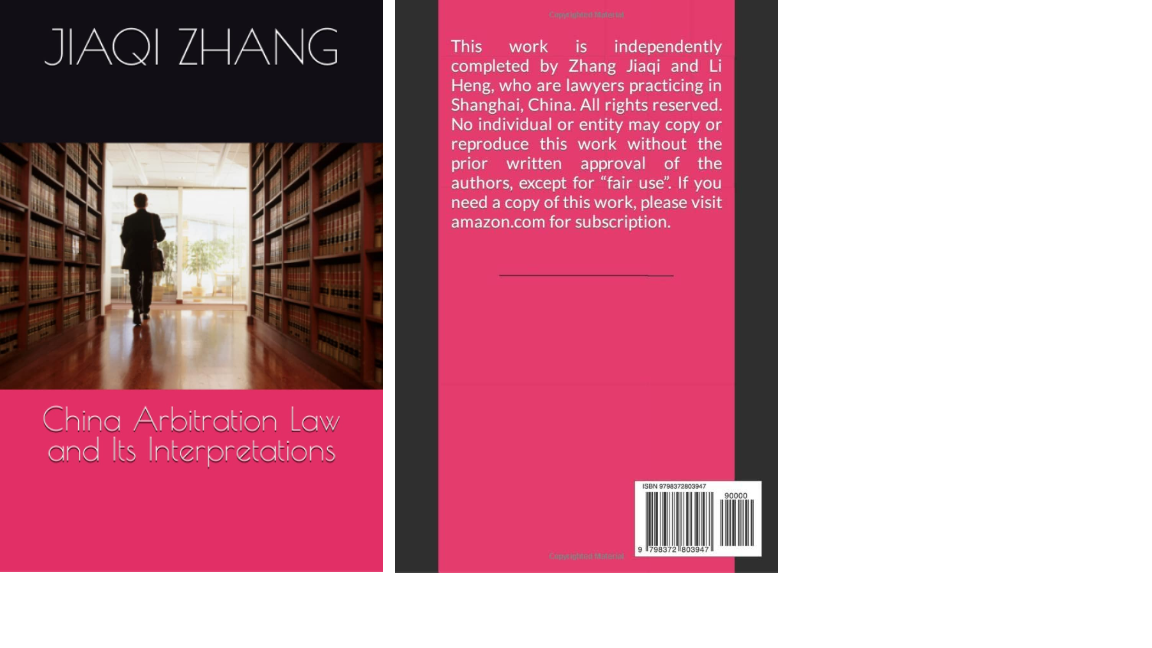
全国服务热线:
18521536308China Arbitration Law and Its Interpretations
2022-06-25
(版权声明:China Arbitration Law and Its Interpretations由上海金律团翻译有限公司的李恒律师、张佳奇律师合作完成。未经本公司许可,不得擅自复制传播!)
(published by Kindle Unlimited)
Article 16 An arbitration agreement may be an arbitration clause in a contract or an agreement for arbitration reached in any other written form before or after the occurrence of a dispute.
An arbitration agreement shall contain:
(1) a manifestation of mutual assent to refer to arbitration;
(2) the issues to be arbitrated; and
(3) the arbitration commission selected.
Article 17 An arbitration agreement shall be invalid if:
(1) the issues to be arbitrated agreed upon under the arbitration agreement are beyond the scope of arbitration specified by law;
(2) the arbitration agreement was entered into by a person without capacity or with limited capacity for civil acts; or
(3) the arbitration agreement was entered into by a party under duress by the other party.
Article 18 Where the issues to be arbitrated or an arbitration commission is not expressly specified in an arbitration agreement, the parties may reach a supplementary agreement, failing which the arbitration agreement shall be invalid.
Article 19 An arbitration agreement shall exist independently, and any alteration, cancellation, termination, or invalidity of a contract shall be without prejudice to the validity of its arbitration agreement.
An arbitral tribunal shall have the power to determine the validity of a contract.
Article 20 Where a party challenges the validity of an arbitration agreement, he may request the arbitration commission to make a decision or a people's court of competent jurisdiction to make an order. Where either party requests the arbitration commission to make a decision and the other party requests a people's court to make an order, the validity of the arbitration agreement shall be determined by an order of the people's court.
Where a party challenges the validity of an arbitration agreement, the challenge shall be filed before the arbitral tribunal proceeds with the first hearing.
An arbitration agreement shall contain:
(1) a manifestation of mutual assent to refer to arbitration;
(2) the issues to be arbitrated; and
(3) the arbitration commission selected.
Article 17 An arbitration agreement shall be invalid if:
(1) the issues to be arbitrated agreed upon under the arbitration agreement are beyond the scope of arbitration specified by law;
(2) the arbitration agreement was entered into by a person without capacity or with limited capacity for civil acts; or
(3) the arbitration agreement was entered into by a party under duress by the other party.
Article 18 Where the issues to be arbitrated or an arbitration commission is not expressly specified in an arbitration agreement, the parties may reach a supplementary agreement, failing which the arbitration agreement shall be invalid.
Article 19 An arbitration agreement shall exist independently, and any alteration, cancellation, termination, or invalidity of a contract shall be without prejudice to the validity of its arbitration agreement.
An arbitral tribunal shall have the power to determine the validity of a contract.
Article 20 Where a party challenges the validity of an arbitration agreement, he may request the arbitration commission to make a decision or a people's court of competent jurisdiction to make an order. Where either party requests the arbitration commission to make a decision and the other party requests a people's court to make an order, the validity of the arbitration agreement shall be determined by an order of the people's court.
Where a party challenges the validity of an arbitration agreement, the challenge shall be filed before the arbitral tribunal proceeds with the first hearing.
- 联系电话: 18521536308、
- 微 信 号:ZJQ18521536308
- Q Q:3053323860
- 邮 箱:EliteLawyers@outlook.com

扫码关注我们
Copyright 2021 上海金律团翻译有限公司 All Rights Reserved 沪ICP备2022023473号-1
 技术支持:索腾网络
技术支持:索腾网络


